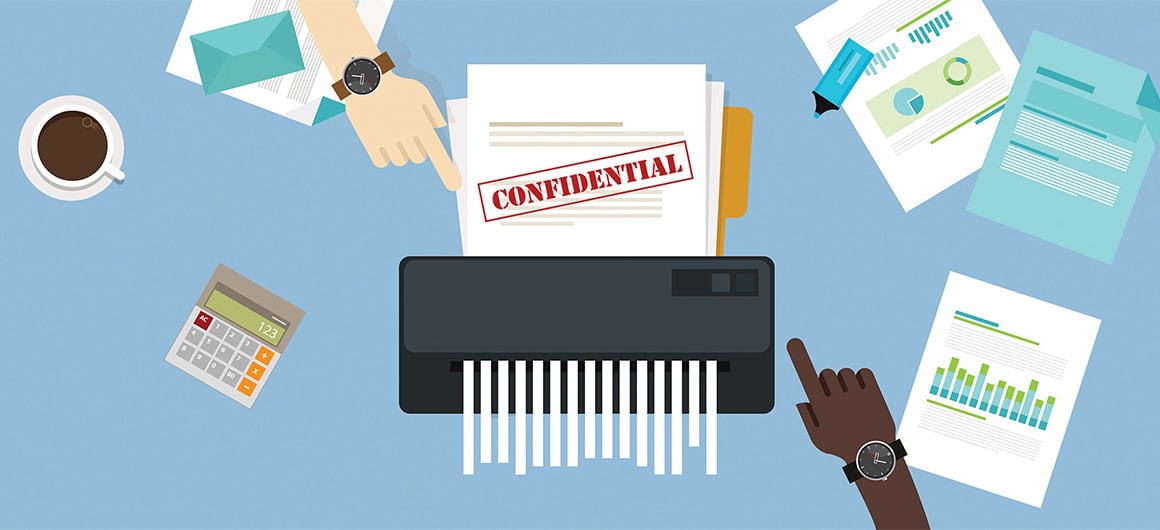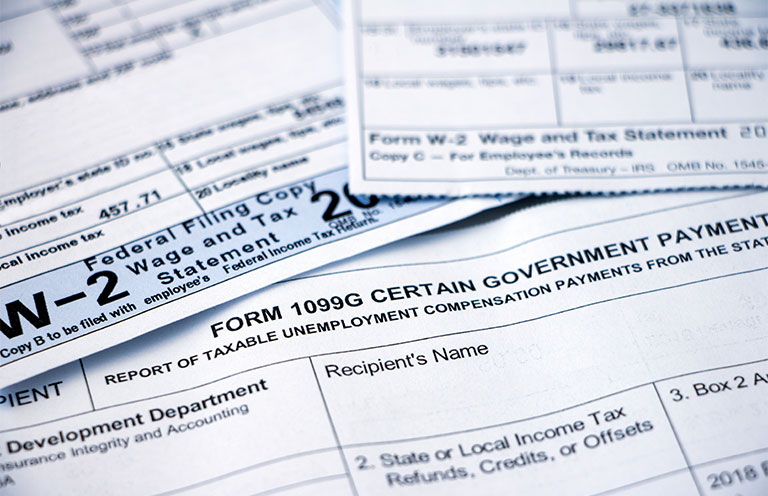How to Keep Your Tax Documents Secure
Four tips for protecting the privacy of your financial information

Figuring out how to get a refund or reduce your tax liability may be top of mind when tax season rolls around, but don’t forget about security afterward. “Your tax return contains a lot of personal information,” says Casey Schulte, manager of tax development at TaxAct and an enrolled agent with the IRS. Social Security numbers, bank account numbers, home address, dates of birth—all this information could be used to steal your identity or gain access to your financial accounts. Thus, it’s critical to both properly store and dispose of your tax returns and associated financial documents.

How long should you keep returns?
Schulte says to follow IRS guidelines of three years for keeping returns. “After that, it’s pretty safe to dispose of them using a cross-cut paper shredder,” he notes.
How do you keep tax documents safe?
Schulte recommends keeping paper documents in a climate-controlled, secure location like a locked filing cabinet or fireproof safe.
But what about electronic documents? “Increasingly people are filing online or are sending documents over the internet,” Schulte notes. At the very least, he recommends encrypting your tax documents. “Encryption methods are often built into PCs or Apple machines,” he notes. “You can encrypt individual documents or files so they’re only accessible to a particular user.”
Schulte points out that many devices come with encryption programs like BitLocker, which allows you to encrypt your entire hard drive. “So even if your computer was stolen, no one could access the hard drive,” he says. Other third-party encryption software options include VeraCrypt, 7-ZIp, NordLocker and OneDrive.
He also recommends using a password manager like LastPass or NordPass. Password managers not only store all your passwords but also help you create unique and impossible-to-guess passwords.

Is it safe to store tax documents in the cloud?
Cloud storage has become the norm, and Schulte says it’s safe to store tax documents there as long as you’re using a reputable service that uses encryption to scramble data.
Options include Apple iCloud, Google Drive and Dropbox. “All offer multi-factor authentication, so make sure you use it,” Schulte advises. “It’s a huge step in securing your data on the cloud.” And he reminds taxpayers never to access their tax returns or other sensitive personal information while using public Wi-Fi.
How do you know if your tax software or tax preparer is keeping your data safe?
If you hire a professional tax preparer, look for credentials like CPA or EA designations. The IRS maintains a list of reputable preparers by state on its website.
